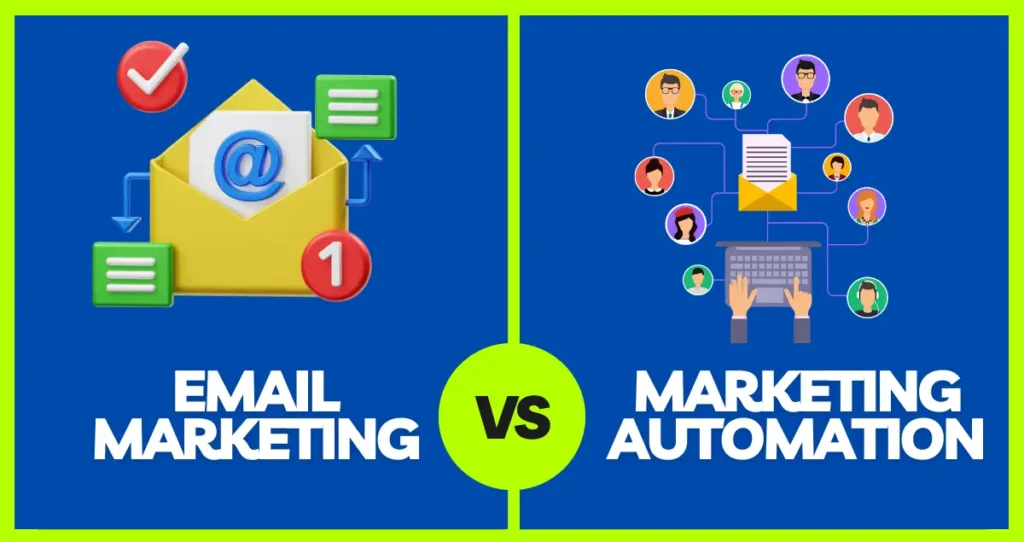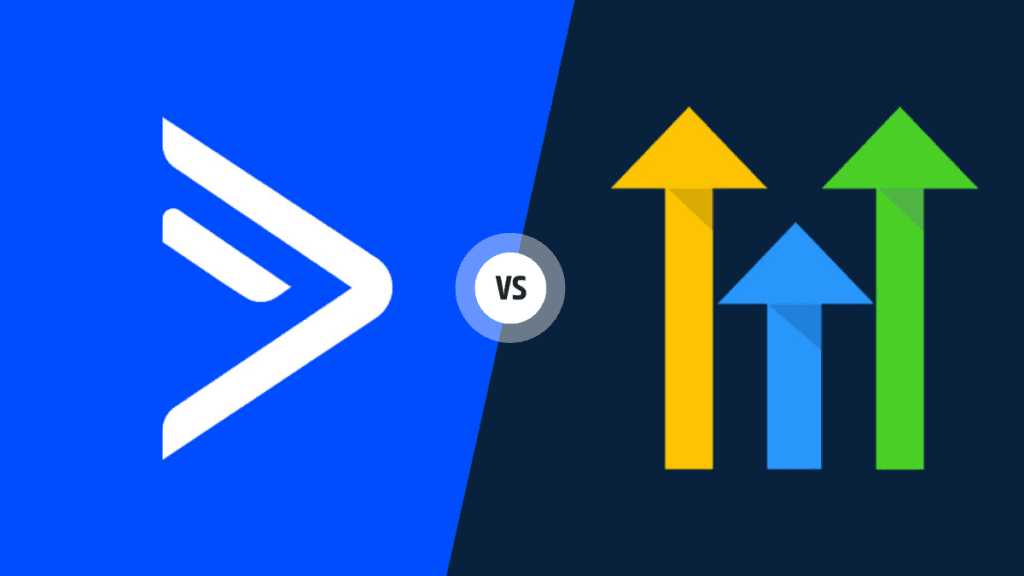Marketing automation for B2B is one of the core pillars defining success in the growing digital landscape. This is much more so in B2B, where sales cycles are longer, and the buying process is long drawn and complicated. Automating activities will make a difference in how firms handle potential clients. Marketing automation tools offer many benefits—from optimizing the process of lead generation to the betterment of communication strategies—benefits that refine and expedite marketing efforts. Therefore, automation of those repetitive and dull tasks allows focusing on creating more personalized and impactful marketing strategies, driving the business toward better success. So whether you’re starting to implement these tools or looking to upgrade the existing ones, understanding the potential of marketing automation in B2B will likely open new ways of growth and enhancement.
What Is B2B Marketing Automation?
B2B Marketing Automation: Technology-driven means automating and managing marketing processes and multifunctional campaigns across multiple channels. In this way, because B2B firms depend on marketing strategies aligned with their business goals, relationships, and communication are made personable and emotional, all of which have become highly important.
It is, therefore, not only sending emails or posting on social media platforms; there is more to that. This includes tools to help nurture leads with information customized for their buying cycle. Automating these processes in data collection, lead qualification, and campaign analysis ensures that marketing efforts are based on strategy and not prone to human error. It leads to proper management of resources, an improved customer experience, and, above all, an increased return on investment from marketing campaigns.
What is a B2B Marketing Strategy?
A B2B marketing strategy is a plan detailing how a business will communicate with other companies, influence the decision-making processes in these organizations, and persuade them to buy the products or services of the company. The emphasis is on making corporate and organizational logical, process-driven purchasing decisions, not on consumer marketing.
In B2B marketing, the plans are prepared considering the valuable relationships that can be built, understanding the client’s business requirements, and providing solutions that will make a difference in their operations. This comes with more personalization in terms of communication in the marketing process in a business scenario. The best B2B marketing strategies include the most effective direct approaches, such as personalized emails, targeted content marketing, and strategic business partnerships—all supported by robust marketing automation tools to enhance efficiency and effectiveness.
Critical Components of a B2B Marketing Strategy
Generates Leads
The B2B sector is all about closing effective leads. Marketing automation helps identify the potential leads associated with various digital touchpoints. Tools such as automated lead capture forms, landing pages, and targeted content will ensure user interaction is recorded and applied effectively. This data then helps to tailor marketing messages that convert initial interest into solid leads, thus making the lead-generation process more efficient.
Builds awareness
Undoubtedly, one of the essentials for a B2B company is to raise brand awareness in a crowded market. With the help of marketing automation, a business can post brand messages on all channels in a consistent manner. Automated social media posts, scheduled newsletters, or even a systematic content marketing campaign make your brand’s reach consistent with the right audience, increasing brand presence in the market.
Drives Traffic
If there is a website, driving the targeted traffic into it will significantly enrich the lead generation process and enhance customer acquisition. Automation tools used to improve practices in SEO will be directed to manage paid ads in a manner that increases the flow of visits. Analytics will let the business know where most traffic generation is coming from. Then, they can alter their strategy to expand reach and engagement further.
Improves Customer Relationships
At the core of B2B marketing is the development of long-term customer relationships. This is done through marketing automation tools that help establish consistent and personalized communication. Automated workflows send tailored emails on customer activities or inactivity, keeping your business relevant and responsive at the top. More importantly, these tools will help in customer segmentation by interaction levels, preferences, and purchase history for better-targeted and more meaningful interactions.
B2B vs. B2C
Understanding how the B2B and B2C marketing strategies differ is essential since the two companies target different audiences with different needs and behaviors. Here is a quick comparison to further differentiate:
- Audience Engagement: The B2C marketing process is short and emotional; it’s based on the decision-making process of a single consumer. The B2B marketing process involves business entities and is usually entirely rational, based on information; it develops over an extended period. This will require a higher level of continuous engagement in the marketing process.
- Sales Cycles: Sales cycles within B2B marketing usually last longer and involve several steps towards approval before purchasing, unlike the sales cycles for B2C goods. These are generally much quicker.
- Relationship Building Long-term relationships are the heart of B2B marketing since business customers prefer steady and committed affairs. B2C marketing, while also cherishing customer loyalty and trust, may often be seen to target single-purchase behavior or short-term involvement directly.
- Level of Customization: B2B marketing practices generally require a higher level of customization at the level of communication and product offerings, considering that the product or service has specific business needs to be met. B2C products and services are much more standardized.
- Value of Transactions: B2B transactions are usually more valuable than B2C transactions. It involves, put in other words, high financial value and translates into reasons that point to the need for trust and reliability in business relationships.
How can B2B marketers use marketing automation?
Marketing automation goes far in shaping the distinctive features of B2B marketing. It is oriented toward building relationships with business clients through regular and personalized contacts, even within a relatively long sales cycle. It has a facility to manage detailed data, which is needed to develop customized communications to help respond appropriately to business needs. The tools can also automate lead nurturing processes that guide initial interests to serious business engagements.
Now, what B2B Marketing Activities Need Automation?
Email Outreach
Email remains one of the most powerful tools in B2B marketing, where personalized communication promptly can ultimately influence the decision-making process. Automation helps in scheduling customer-triggered or inactivity-triggered emails, making it possible for each message to be contextually relevant and timely. It also allows testing with A/B on different email formats and content to optimize engagement and conversion rates.
Lead Tracking
Following leads along their purchase journey is the fundamental premise of marketing. Automation tools monitor their interactions across different channels, creating a comprehensive view of the lead’s behavior and preferences. This is invaluable data for adjusting marketing strategies and personalizing future communications toward the needs of potential clients.
Lead Nurturing
Nurturing leads can be automated seamlessly until a purchase can be made. Automated systems enable the pushing of targeted content and messages at each critical stage of a buyer’s journey, maintaining engagement and further nurturing leads down the funnel.
Lead Scoring
Automation tools can score leads according to their responsiveness or stage of readiness to buy, among other criteria. This guarantees that the pertinent leads receive adequate attention and that the marketing and sales teams channel their energy into what will result in conversion.
Customer Profiling and Data Enrichment
Effective B2B marketing should go beyond a customer’s surface. In this case, automation tools can collate data from all sources to provide a complete profile and, in turn, inform more personalized marketing strategies and better customer segmentation.
Onboarding and Welcome
From the moment a customer decides to engage, the initial experience can set the tone for the whole relationship. Automated welcome emails and onboarding sequences will ensure that new clients get the information they need, know they are appreciated and are motivated to engage fully with your services or products.
Upselling and Cross-selling
Based on customer purchase history and interaction data, automation systems can provide opportunities for upselling and cross-selling. Suggest the relevant product or service you are selling, and a business can effectively grow the value of each customer.
LinkedIn Outreach Messaging
For B2B businesses, the ability to network with prospective clients on platforms such as LinkedIn is priceless. With marketing automation tools, you can optimize and maintain reach-out campaigns on these networking platforms as best as possible.
Examples of B2B Marketing Automation
Audience Segmentation
Effective audience segmentation allows B2B marketers to target strategies to some specifications in the group, whether in the industry, company size, or user behavior. This could mean that an automation tool can, therefore, category lead from a trade show differently than from web sign-ups, allowing for specially designed follow-up campaigns that address the unique needs of each group.
Lead Nurturing
For instance, running an automated series of emails in the lead nurturing process is a common scenario, delivering helpful content as the buyer goes through the sales funnel. For example, if a user downloads a whitepaper, it will automatically follow up with the user several days later to invite them to an upcoming webinar related to the information in the whitepaper, keeping the engagement and education going.
Customer Service
Marketing automation also might help optimize the service process because the system can react to messages immediately with some answer that has been pre-set or forward these messages to the appropriate department. Automation tools for companies working with international clients ensure that time zones do not affect important communication and provide 24/7 service.
Customer Data Tracking
Automation tools can gather and analyze vast amounts of data from different touchpoints, like website visits, email interactions, and social media engagements, to fully view a customer’s behavior. Insights from this data are then used to optimize a marketing strategy and improve interaction with customers.
How to Choose a B2B Marketing Automation Software
In this implementation, executing a B2B marketing strategy using marketing automation software starts with the right choice of the right features. Here are some of the features to be considered:
Lead Management
Strong lead management from initial contact to conversion: lead data management and tools for segmenting and nurturing leads. This system makes possible the management of lead data by the business and, upon analysis, can focus on the most promising leads.
Email Campaigns
Email campaign management software should enable management from creating email marketing campaigns to executing and analyzing them. Look for A/B testing capability, autoresponders, and in-depth analytics that may be valuable in tracking and measuring your emails’ effectiveness.
Personalize
Emails, landing pages, and other materials can be templated to save time so the brand can be expressed more consistently across campaigns. Find a software provider that offers a large variety of templates that can be adjusted according to the needs of your brand and the purpose of your communication.
Social Media Marketing
It should have embedded tools that will help you manage and analyze the increasingly integral part of the B2B market: social media campaigns. This will include post-scheduling, follower interaction, and measurement of engagement and conversion from these platforms.
Human Touch
The power is in the ability to craft specific messages through the clients’ data; the software should be automated in that it should have the capability to segment audiences and tailor messages.
Automatic Alerts
Your sales team will automatically be alerted to critical events or activities taken by leads, such as opening an email or hitting a high-value webpage. These real-time alerts ensure that your sales team makes quick, relevant actions, ultimately increasing conversion rates.
Workflow Organization
Successful marketing operations can be leveraged through the effective management of workflows. The best automation software should be able to organize and automate your marketing workflows, making the management of such complex marketing campaigns with many touch points a lot easier.
B2B Marketing Automation Platforms
Choose the platform that will be the key to unlocking the full potential of marketing automation in a B2B environment. Below are some of the popular platforms and functions people know about:
Recharge
Encharge is a tool crafted for startups and digital businesses. It’s an automation tool based on user behavior. This integrates well with CRM systems and offers tools for behavioral email marketing—great for companies that want to make their marketing personalized from users’ actions.
HubSpot
With over 600 integrations, HubSpot is the most popular all-in-one marketing platform comprising email marketing, social media, CRM, and content management. Easy to use, it is integrable, robust, and scalable for any business.
Salesforce
Being one of the most prominent CRM systems, Salesforce can be related to having a great marketing cloud, which helps support customer journeys in a highly personalized way. This suite has advanced analytics and segmentation tools that fit perfectly for B2B companies needing advanced marketing campaign insights.
Pardot
Pardot is a B2B marketing automation solution by Salesforce. It excels at lead management, lead nurturing, and sophisticated ROI reporting—best for businesses that must prove their campaign results.
Marketo
Another marketing automation leader, Marketo, offers email, mobile, social, digital ads, web management, and analytics capabilities. It performs well for most enterprises looking for great depth in automation and integration options.
Rozi Academy Automation Virtual Assistant Services
At Rozi Academy, businesses get customized for automation. Their virtual assistant services are personalized for smoother marketing processes. Built to work effectively and efficiently with all other marketing tools through personalized support and automation expertise.
Conclusion
Marketing Nation has changed how B2B companies use their marketing strategy: businesses can focus on more strategic activities that drive growth by automating repetitive tasks and personalizing interactions to build strong and lasting client relationships. When correctly done with the right tools and strategies, marketing automation considerably enhances the effectiveness of your marketing efforts, giving a substantial ROI.
Ready to start bringing your B2B marketing to a new level? Check out our Automation Virtual Assistant Services at Rozi Academy. With our dedicated team, we ensure that you are helped to integrate the finest automation tools into your marketing strategy. Visit www.roziacademy.com for more details, and set out to be one of the pioneers in advanced B2B marketing!







